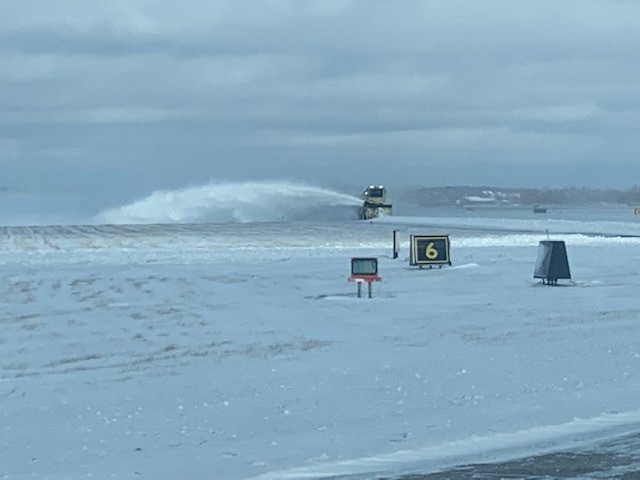
May 26, 2023
The Northeast Chapter of the American Association of Airport Executives annually recognizes airports with the Balchen/Post Award for excellence in the performance of airport snow and ice control, and this year, Colorado’s Rocky Mountain Metropolitan Airport (BJC) and New York’s Niagara Falls International Airport (IAG) were honored in the large and small general aviation (GA) airport categories, respectively.
NBAA is a member of the selection committee that evaluates applications from military airfields and commercial and general aviation airports.
“GA airports that persevere to stay open, with fewer resources to battle snow and ice compared to larger commercial facilities, deserve particular recognition,” said Alex Gertsen, NBAA director of airports and ground infrastructure.

Rocky Mountain Metro received 51 inches of snow this winter, about average, but 22.8 inches fell during a 16-hour storm, and the airport never issued a closure NOTAM. JSX, a public charter operator, began six daily departures from the airport in August, which changed the airport’s snow plan. To prevent fatigue, the airport added six individuals to the snow team and redefined each member’s role in a predetermined template.
“These changes provided additional help on apron and landside areas, enabling the operations and maintenance team to consistently focus on keeping runways safe and open,” said Airport Operations Manager Chris Nicholas. “Communication between snow leads and aircraft, airlines, equipment operators and ATC keeps us on top of every storm. It also provides valuable feedback that allows us to continuously improve our winter operations.”
For 52 hours over Christmas, 36.15 inches of snow fell on Niagara Falls International, which received its fifth Balchen/Post Award. “We have a dedicated team, and they didn’t go home until it was over,” said Airport Manager Robert A. Stone. With a retirement and a family relocation short-handing the snow team by two, they met the challenge. The airport closed for 24 hours because the visibility was zero.
With an eight-hour break between their 16-hour shifts, two teams of four and their supervisors cleared two runways, their overruns and the taxiways connecting them to the terminal and three GA ramps. They plowed and salted five terminal parking lots and roadways.
“We are grateful for the efforts airport snow fighters put forward to keep airports operating safely and supporting business aviation in fulfilling its mission,” added Gertsen.


 International Business Aviation Council Ltd.
International Business Aviation Council Ltd.